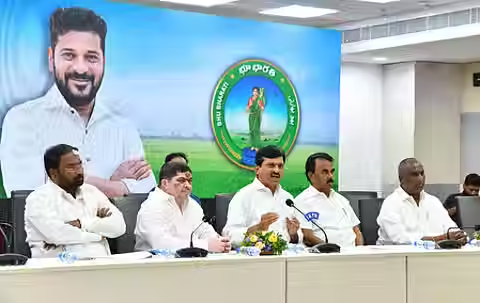Telangana Approves 42% OBC Quota in Local Body Elections
- vidyarthee2021
- Jul 15, 2025
- 2 min read

The Telangana government has approved 42% reservation for Backward Classes (OBCs) in local body polls, marking a major step in political representation at the grassroots level.
Constitutional Backing
Articles 243D (Panchayats) and 243T (Municipalities), inserted via the 73rd and 74th Constitutional Amendments (1992), empower states to reserve seats for Backward Classes in local governance.
Seats and Chairperson posts can be reserved for SCs, STs, OBCs, and Women as per state legislation.
Key Reservation Provisions
SCs/STs: Reservation based on population, rotated across constituencies.
Women: Minimum 33% seats, including within SC/ST quotas.
Chairperson posts: Can also be reserved for SCs, STs, OBCs, and women.
UPSC-Relevant Points
Articles 243D & 243T promote political inclusion in PRIs and Urban Local Bodies.
Reservation for OBCs in local bodies is state discretion, unlike in Parliament or State Assemblies.
Ensures grassroots democratization and affirmative action in line with Directive Principles.
UPSC Prelims MCQ
Q. With reference to Articles 243D and 243T of the Indian Constitution, consider the following statements:
They mandate 27% reservation for OBCs in Parliament.
They allow reservation for women in Panchayats and Municipalities.
Chairperson posts can also be reserved under these articles.
Which of the statements given above is/are correct?
A. 1 and 2 only
B. 2 and 3 only
C. 1 and 3 only
D. 1, 2 and 3
Answer: B. 2 and 3 only
Explanation:
Statement 1 is incorrect: OBC reservation in Parliament is not mandated, and is a matter of local body discretion under Articles 243D/T.
Statements 2 and 3 are correct as both women’s reservation and Chairperson post reservation are allowed.
UPSC Mains Question (GS2 – Polity)
Q. The constitutional provisions under the 73rd and 74th Amendments have enabled greater political participation at the grassroots. Critically analyze the role of local body reservations in enhancing social justice and inclusive governance.




Comments